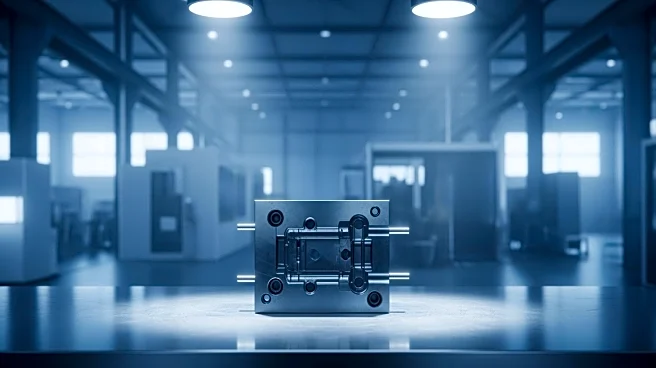What's Happening?
Jeff Bezos, the founder of Amazon, is reportedly returning to active business operations as co-CEO of a new AI startup named Project Prometheus. The venture has secured $6.2 billion in funding and aims
to develop AI products for engineering and manufacturing sectors, including computers, aerospace, and automobiles. Bezos will share leadership with Vik Bajaj, a former leader at Google's life sciences division and co-founder of Verily. Project Prometheus focuses on 'AI for the physical economy,' aiming to simulate the physical world to train AI models, similar to the work of Periodic Labs. The startup has already recruited nearly 100 staff from prominent AI firms such as Meta, OpenAI, and Google DeepMind.
Why It's Important?
Bezos's involvement in Project Prometheus marks his return to operational roles since stepping down from Amazon in 2021. This move could significantly impact the AI industry, particularly in sectors that rely on physical economy applications. The substantial funding and high-profile leadership suggest that Project Prometheus could become a major player in AI development, potentially influencing technological advancements in engineering and manufacturing. The startup's focus on simulating the physical world for AI training could accelerate scientific research and innovation, benefiting industries that depend on advanced AI solutions.
What's Next?
As Project Prometheus progresses, it may attract further investment and partnerships, given its ambitious goals and leadership. The startup's development of AI products for various industries could lead to collaborations with major companies in aerospace, automotive, and computing sectors. Stakeholders in these industries may closely monitor the startup's advancements, considering potential integration of its AI solutions into their operations. The success of Project Prometheus could also inspire similar ventures, driving competition and innovation in the AI field.
Beyond the Headlines
The ethical implications of AI development in the physical economy are significant, as these technologies could reshape industries and labor markets. Project Prometheus's approach to simulating the physical world for AI training raises questions about the accuracy and reliability of such models. Additionally, the startup's focus on engineering and manufacturing applications may prompt discussions on the role of AI in enhancing or replacing human labor, with potential cultural and societal impacts.









